
Swim spa costs vary, but each unit offers the benefits of a pool and hot tub combined. Use this guide to plan your budget.
Your sauna purchase should be no sweat


If you are considering buying a sauna for the home, you have likely already pictured yourself relaxed, refreshed, and feeling great in your very own sauna. Sometimes referred to as steam rooms, firebaths, steam baths, sweat baths, or thermal baths, saunas are rooms or enclosures where people use heat and steam to induce perspiration for therapeutic treatment and relaxation. The earliest saunas used heated rocks and water to create steam; some modern saunas still use this method, while others use electricity and infrared therapy.
Here, we offer 10 tips to help simplify the process of buying a home sauna.
Sweating away your stress sounds great, but are you sure a home sauna is exactly what you want? Before you get carried away with visions of relaxing in your very own steam bath and start comparing infrared vs. steam saunas, be sure you actually like the experience of being in a sauna and know the common pros and cons of having and using one.
| Pros | Cons |
|---|---|
| Provides relaxation | May overheat body |
| Increases blood flow and circulation | Can be expensive to install and maintain |
| Can add value to a home | Can take up a lot of space |
If you think saunas are just for relaxing, you are missing out on a lot of other possible benefits. Having a home sauna can give you constant access to a popular wellness tool. Used for relaxation, fitness, health, and social time, benefits can include increased cardiovascular health, mental health, pain relief, detoxification, immunity and weight maintenance, better sleep, and a management strategy for various health conditions and illnesses.
Your reason for wanting a sauna can help you choose which type and model is best for you. From infrared vs. traditional saunas, to indoor and outdoor saunas, to barrels and tiny houses, you have a lot of options. Traditional steam saunas may require some combination of wood-burning stove access, ventilation, drainage, and plumbing, while infrared saunas require higher electrical power and access to electrical sources.
Home saunas cost between $1,500 and $10,000, and custom saunas can be even more. That is a wide range that covers the gamut of differences between sizes, features, type, and construction. Before you begin shopping, you will want to decide how much you intend to spend on your new sauna. It is easy to get swept up in the excitement of purchasing, so having a number you want to spend (as well as a maximum) can help keep you on track.

You have two choices—indoor or outdoor. Once decided, you can choose if you want to put your outdoor sauna on a patio or deck, near a pool, or in a quiet location. You can install an indoor sauna in the garage, a spare room, your basement, a specially designed sauna room, or an area as small as an extra closet. Infrared saunas can be indoor or outdoor as long as they are sheltered. Traditional steam saunas should be installed by a professional and located near plumbing and electrical lines with accommodations for drainage and ventilation.
Personal saunas can seat just one or many people; for larger models, plan about 20 inches of bench space for each user. Since sauna sizes vary, you will need to balance your needs with how big your space is.
Sauna styles range from rustic and traditional to modern and automated, and every line has many amenities to choose from. Glass doors can make the interior space feel larger; custom benches and ergonomic seating can add to your comfort; the type of heater will change the way the steam and heat feel; and extra features like light therapy, LED lighting, sound systems, automatic timers, roof vents, and aesthetic choices will change your experience.
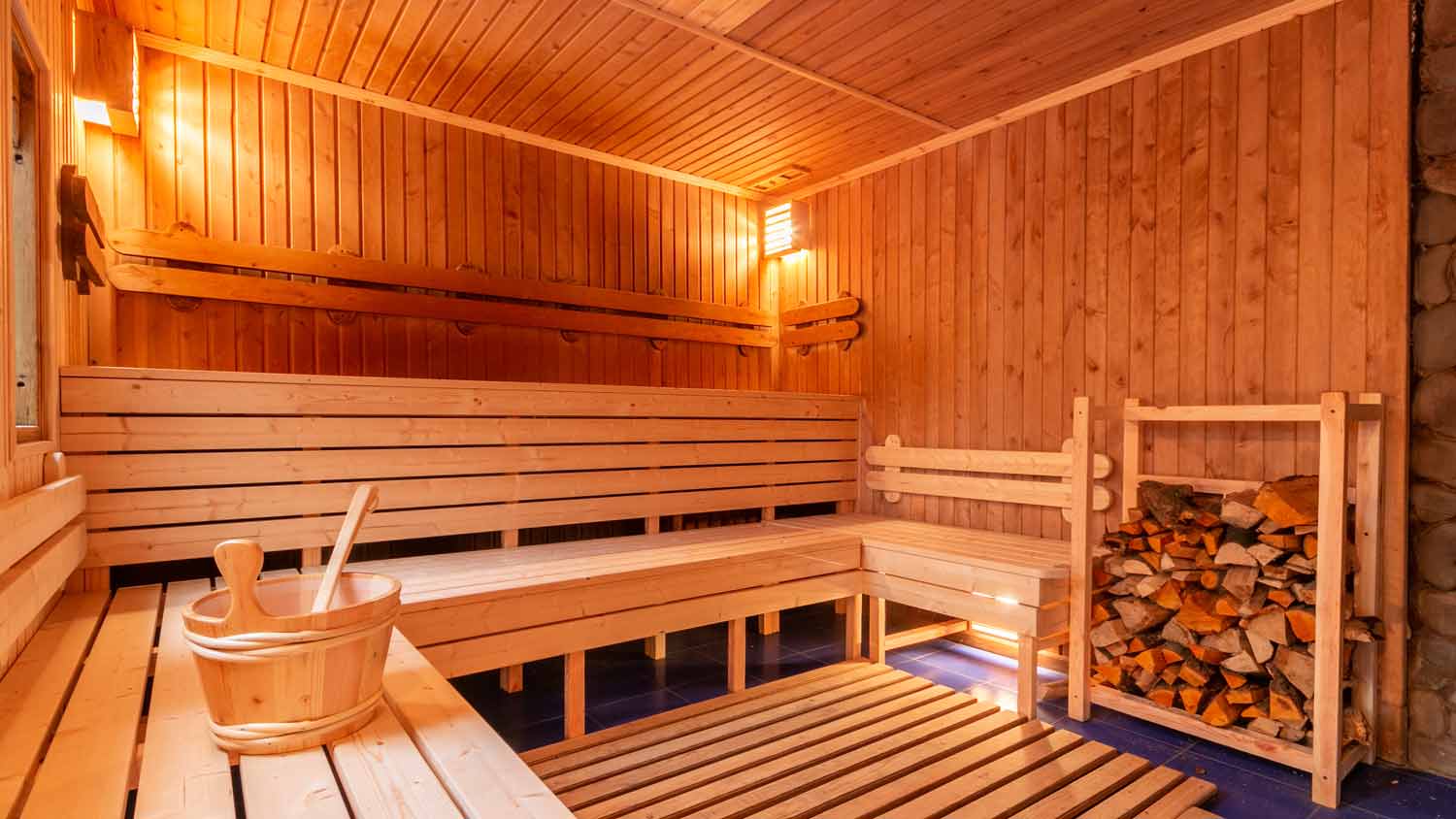
Almost all saunas are made of wood, and this may be one of the most important features to pay attention to. You will want to know what type of wood the saunas you are considering are made of, since premium woods like cedar and hemlock are generally more durable than less expensive pine or plywood, which can shrink, warp, and split.
Most consumers prefer high-quality, chemical-free wood that has been kiln-dried or air-dried, as this will make the sauna safer to use and give it more longevity. It is also important to know what the wood will smell like when heated. Different woods have different scents; some can be unpleasant to certain individuals, and some types of wood can trigger allergies or sensitivities.
Saunas can be dangerous if they are not built right or do not include important safety features. Look for automatic shut-down timers, certified electric components, and tempered safety glass.Your sauna should not include toxic materials or off-gas harmful solvents or glues, and it should be tested and proven safe from electromagnetic (EMF) or electric (ELF) fields that can cause sensitivity or illness.
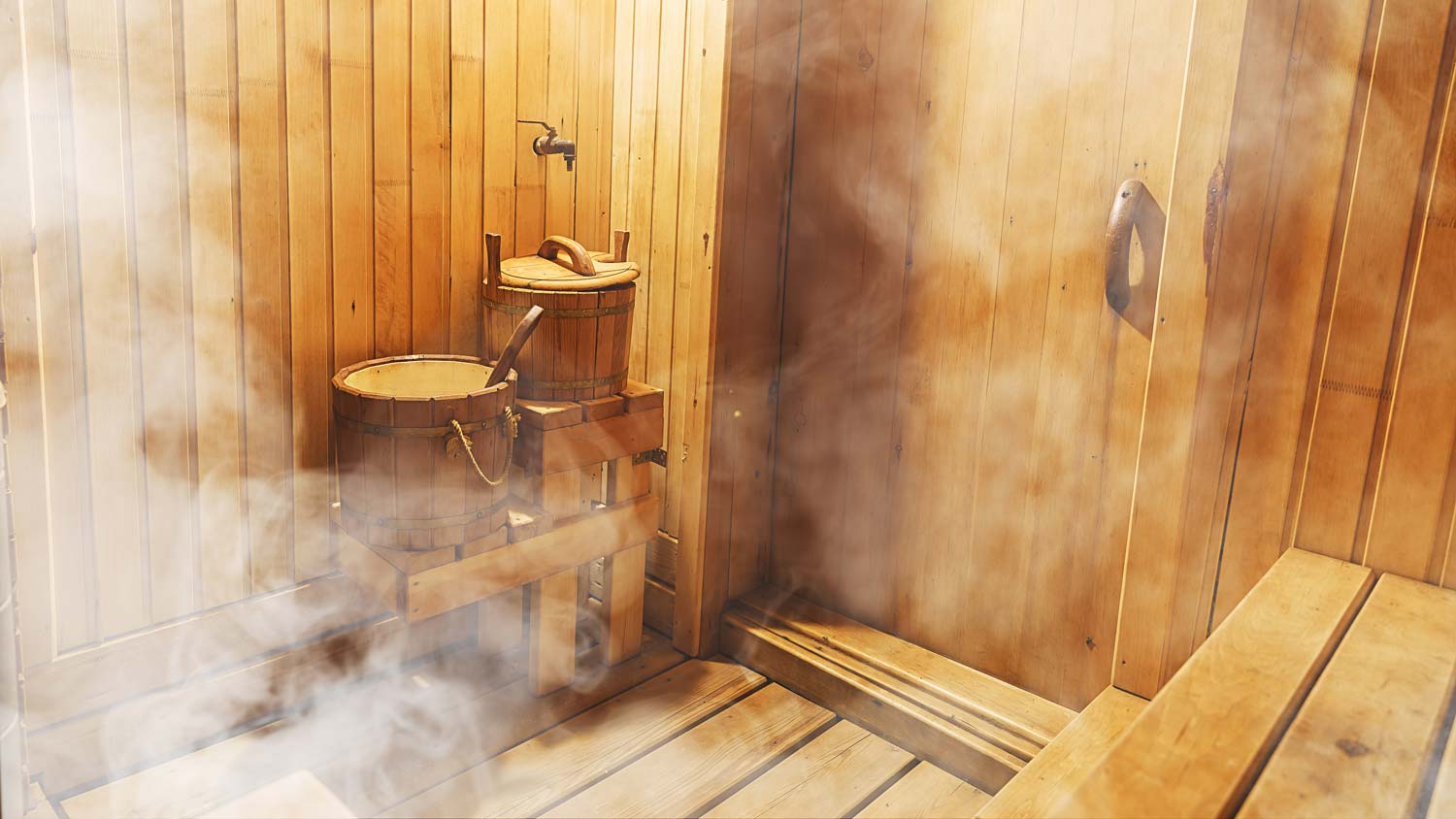
Each type of sauna has different operation costs, and you should know how much you can expect to spend per month to run your sauna. Most infrared saunas are energy efficient, averaging about $10 a month to run. On the other hand, running a traditional electric sauna can cost an average of $20 to $30 per month. You may save money by going with a wood-burning sauna, depending on the cost and accessibility of firewood.
Most quality saunas come with warranties that cover every part, including the exterior and interior surfaces, heating system, power supply, control panel, wood, glass, metal components, and more. Your sauna dealer should be willing to discuss warranty coverage and provide you with written warranty documents.
Be sure to read all of the fine print so that you understand what is covered, what is not, how long the warranty is valid, all warranty coverage details, and who bears the responsibility for warranty claims.
Unless you are investigating how to build a sauna yourself, you will want to find a reputable local seller and sauna installation pro near you. Beware of any person or store that applies high-pressure sales tactics or that does not take the time to help you determine whether a particular sauna is right for you and which one best fits your needs. You should be able to test out different types of saunas and spend time in the saunas you are considering. Your dealer should also be available, honest, and have good reviews.
From average costs to expert advice, get all the answers you need to get your job done.

Swim spa costs vary, but each unit offers the benefits of a pool and hot tub combined. Use this guide to plan your budget.
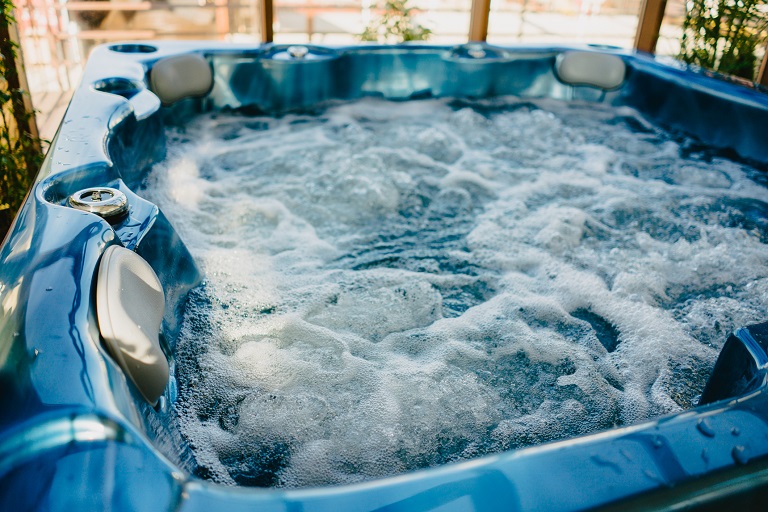
Wondering how much it costs to run a hot tub? Discover average monthly and yearly costs, key factors, and tips to keep your hot tub expenses in check.
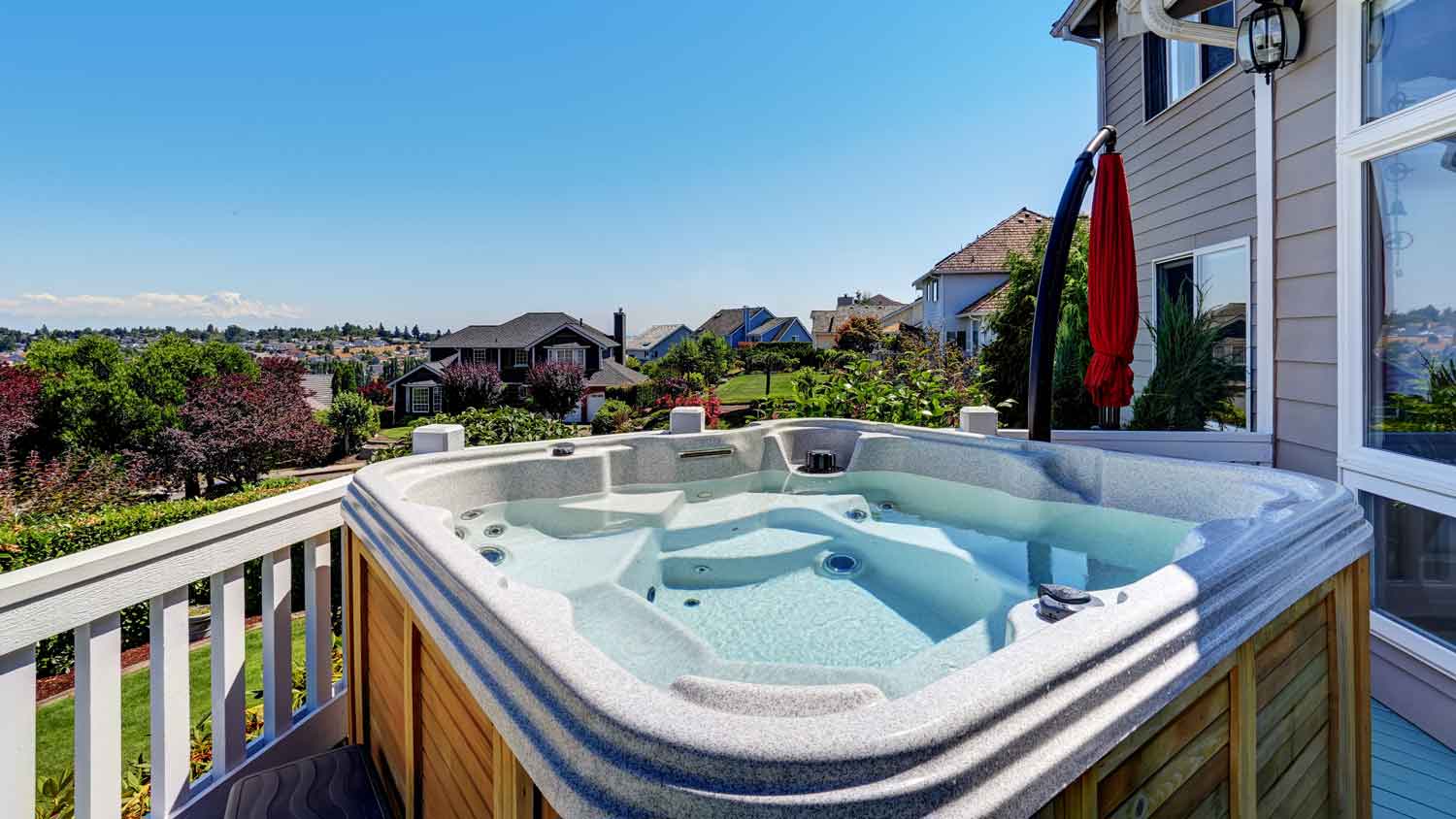
Discover how much a saltwater hot tub costs on average, including installation and ongoing expenses, plus tips to save money and compare DIY vs. pro options.

Pools don’t hold chlorine if there’s organic matter, debris, or chemical imbalances. Keep reading to find out why your pool is not holding chlorine.

Winterizing your hot tub during colder periods helps prevent potential damage caused by freezing. Learn how to winterize a hot tub.
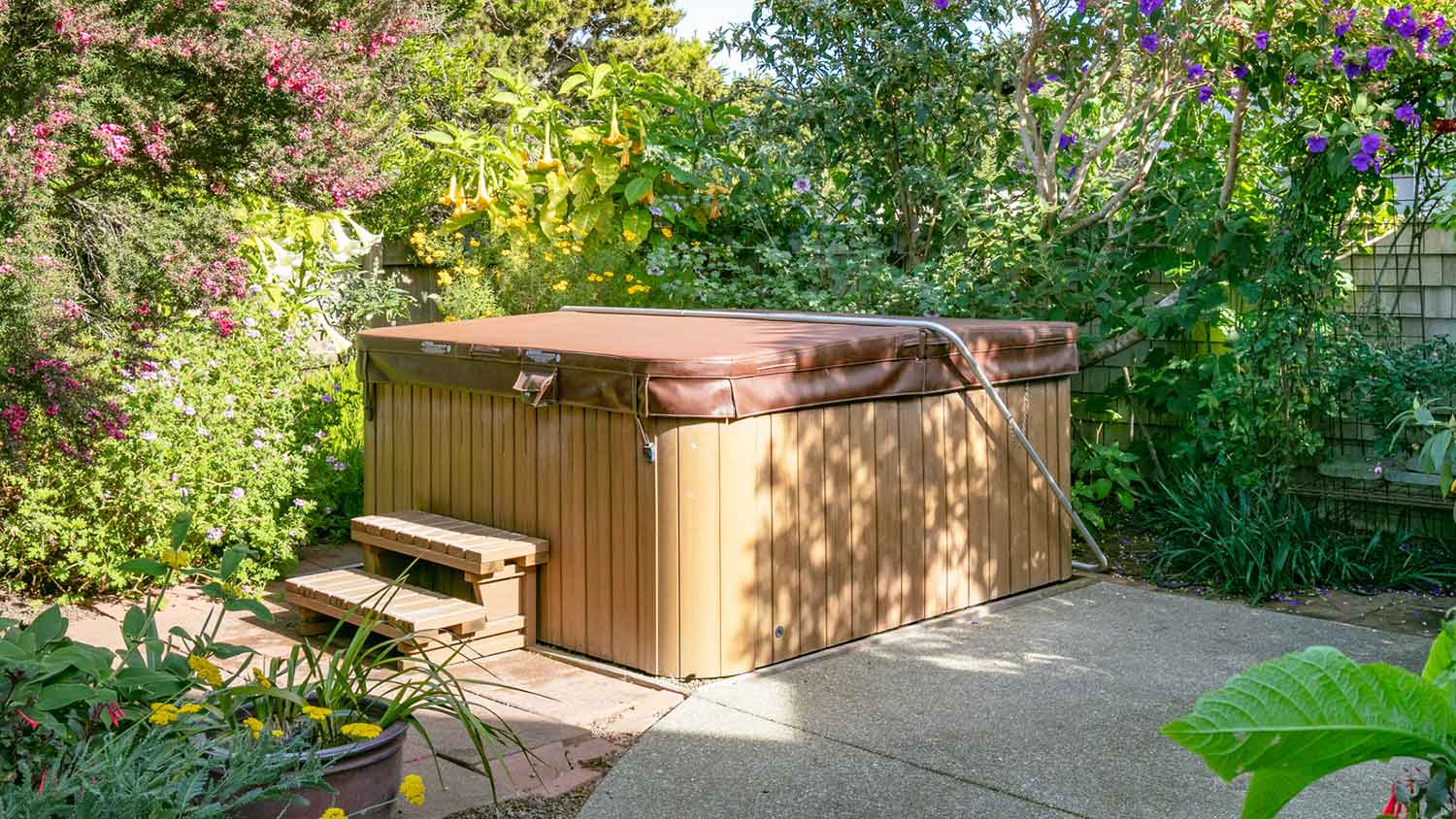
Struggling to lift the cover off of your hot tub? If you're wondering "Why is my hot tub cover so heavy," the good news is it's the cover, not you.